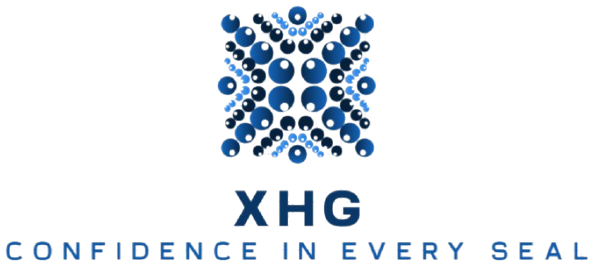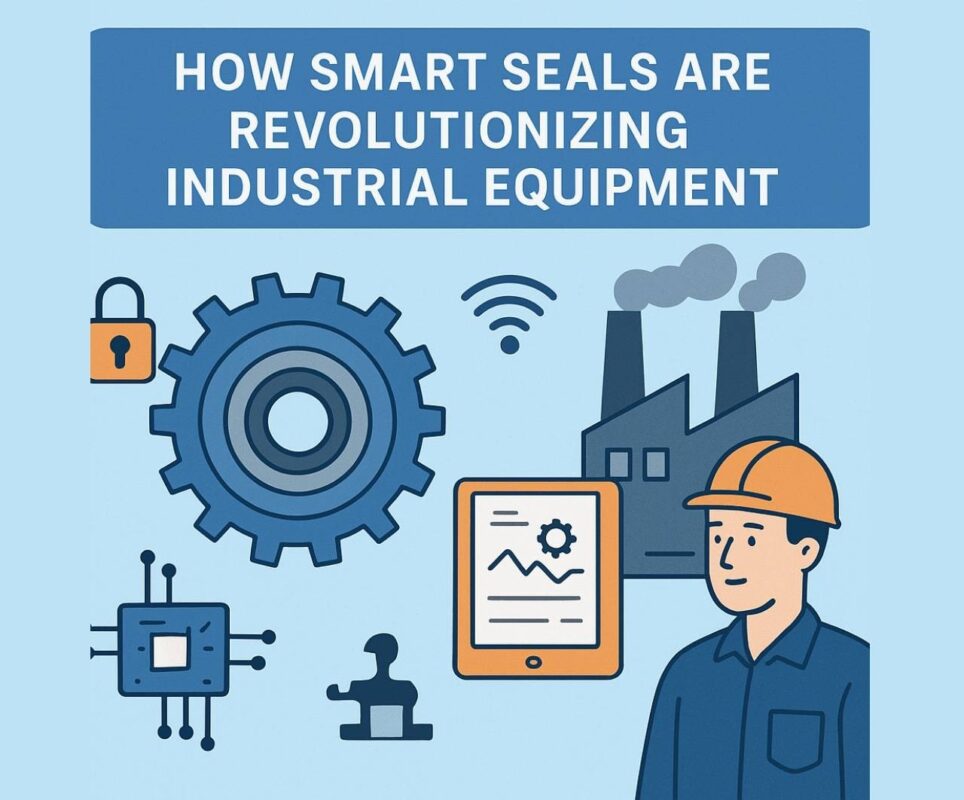In today’s rapidly evolving industrial landscape, AI in seal manufacturing, automated seal production, and modern sealing technology are revolutionizing how seals are designed, produced, and maintained. Manufacturers across the globe are leveraging these advancements to improve efficiency, accuracy, and sustainability in seal production. From automotive applications to aerospace, food processing, and chemical industries, the integration of artificial intelligence (AI) and automation into seal manufacturing has become a key differentiator for companies striving to stay competitive. In this article, we explore the transformative role of AI and automation in modern seal production, highlighting how these technologies are shaping the future of sealing solutions. Know more..
How AI is Transforming Seal Manufacturing
The incorporation of AI in seal manufacturing has dramatically enhanced both production efficiency and product quality. AI systems analyze vast amounts of data from the production floor to identify patterns and predict potential issues before they occur. This predictive capability ensures that seals meet strict industry standards, reducing the risk of failure and improving overall reliability.
Machine learning algorithms can monitor variations in raw material properties, environmental factors, and machine performance. For example, an AI system can detect minor deviations in rubber compound consistency or surface smoothness, automatically adjusting production parameters to maintain quality. By reducing human error and optimizing the manufacturing process, AI-driven solutions lead to significant cost savings and higher throughput.
Moreover, AI enables manufacturers to innovate faster. By simulating the performance of seals under different conditions, engineers can design more durable, efficient, and specialized products without the need for multiple costly physical prototypes. This ability to accelerate research and development while maintaining stringent quality standards positions companies at the forefront of modern sealing technology.
The Advantages of Automated Seal Production
Automated seal production is another major breakthrough that complements AI technologies. Automation in seal manufacturing includes robotics, CNC machining, and advanced material handling systems that streamline repetitive tasks and minimize human intervention. This results in consistent product quality, reduced production time, and enhanced workplace safety.
Robotic systems can perform complex operations with precision, from molding and cutting to assembly and packaging. For instance, in hydraulic and pneumatic seal production, robots ensure uniform dimensions and surface finish, eliminating variations that could compromise seal performance. Additionally, automation allows manufacturers to operate around the clock, boosting production capacity and meeting growing global demand.
Automation also supports lean manufacturing principles. By integrating smart sensors and real-time monitoring systems, manufacturers can track production metrics, identify inefficiencies, and implement corrective actions immediately. This level of control improves yield rates, reduces waste, and contributes to sustainable manufacturing practices, which is becoming increasingly important in today’s environmentally conscious market.
Enhancing Quality Control with AI and Automation
One of the most significant benefits of combining AI and automation in seal production is enhanced quality control. Traditional quality inspections rely heavily on manual checks, which are time-consuming and prone to errors. AI-powered vision systems can automatically inspect every seal produced, detecting defects such as cracks, dimensional inaccuracies, or surface imperfections with unparalleled precision.
For example, computer vision algorithms can analyze thousands of seals per hour, ensuring only those that meet strict quality standards reach the market. This not only reduces the risk of product recalls but also strengthens customer trust and brand reputation. Moreover, by continuously collecting and analyzing production data, AI systems can predict maintenance needs for machinery, preventing unexpected downtime and optimizing operational efficiency.
By integrating automated quality control with real-time data analytics, companies achieve a seamless production process where issues are addressed before they escalate. This proactive approach exemplifies the capabilities of modern sealing technology, where intelligence, speed, and accuracy converge.
AI-Driven Predictive Maintenance in Seal Manufacturing
Predictive maintenance powered by AI is a game-changer in automated seal production. Machines and molds used in seal manufacturing are subject to wear and tear, which can lead to production delays and defective products if not properly maintained. AI algorithms can analyze sensor data to predict when equipment is likely to fail, enabling timely maintenance and reducing costly downtime.
This predictive capability extends the lifespan of machinery, minimizes unexpected repairs, and ensures consistent production quality. By combining predictive maintenance with automation, manufacturers can achieve an optimized production flow where both human and machine resources are used efficiently, aligning with industry 4.0 principles.
Sustainability and Efficiency in Modern Seal Production
In addition to improving quality and productivity, AI and automation contribute to sustainability in seal manufacturing. Precise control over production processes reduces material waste, energy consumption, and the environmental footprint of operations. For instance, AI systems can optimize the use of polymers and elastomers, ensuring the right amount is used for each seal, while automated machines minimize scrap and defective outputs.
Sustainable practices are increasingly important for companies aiming to meet environmental regulations and consumer expectations. The integration of modern sealing technology with eco-friendly practices demonstrates how AI and automation not only enhance profitability but also support responsible manufacturing.
Customization and Rapid Prototyping
Another key advantage of AI in seal manufacturing is its ability to enable rapid prototyping and customization. AI-driven design tools can simulate seal performance under different operational conditions, allowing engineers to create tailored solutions for specific applications. This capability is particularly valuable in industries such as aerospace, automotive, and chemical processing, where seals must meet highly specialized requirements.
Coupled with automated production systems, these custom designs can be manufactured quickly and efficiently. This synergy between AI and automation reduces lead times, accelerates product launches, and provides a competitive edge in dynamic markets.
Future Trends in AI and Automation for Seals
The future of modern sealing technology will be increasingly shaped by advanced AI applications, robotics, and smart materials. Emerging trends include:
- Digital Twin Technology: Creating virtual replicas of manufacturing processes to simulate production, optimize operations, and predict maintenance needs.
- Collaborative Robotics (Cobots): Robots that work safely alongside human operators to enhance efficiency and flexibility.
- IoT-Enabled Production Lines: Connected devices providing real-time data for continuous process optimization and predictive analytics.
- Advanced Materials: AI-assisted development of high-performance, sustainable sealing materials for extreme environments.
- Smart Manufacturing Analytics: Leveraging big data to enhance decision-making, reduce costs, and increase overall operational intelligence.
These innovations underscore the central role of AI in seal manufacturing and automated seal production in shaping a future where efficiency, precision, and sustainability coexist.
Conclusion
The integration of AI in seal manufacturing, automated seal production, and modern sealing technology represents a paradigm shift in the sealing industry. By enhancing efficiency, precision, and sustainability, these innovations are transforming traditional manufacturing processes into intelligent, data-driven operations. Manufacturers adopting AI and automation gain a competitive advantage through improved product quality, reduced downtime, faster prototyping, and eco-friendly practices.
As industries continue to evolve and demand higher performance and reliability from seals, embracing AI and automation is no longer optional—it is essential. By leveraging these cutting-edge technologies, companies can meet the challenges of today while preparing for the innovations of tomorrow, ensuring a future where seals are smarter, stronger, and more sustainable than ever. Know more..



